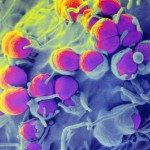Lien vers Pubmed [PMID] – 19409092
BMC Health Serv Res 2009;9:73
The recovery process is characterized by the interaction of a set of individual, environmental and organizational conditions common to different people suffering with a mental health problem. The fact that most of the studies have been working with schizophrenic patients we cannot extend what has been learned about the process of recovery to other types of mental problem. In the meantime, the prevalence of anxiety, affective and borderline personality disorders continues to increase, imposing a significant socioeconomic burden on the Canadian healthcare system and on the patients, their family and significant other 1. The aim of this study is to put forward a theoretical model of the recovery process for people with mental health problem schizophrenic, affective, anxiety and borderline personality disorders, family members and a significant care provider.

